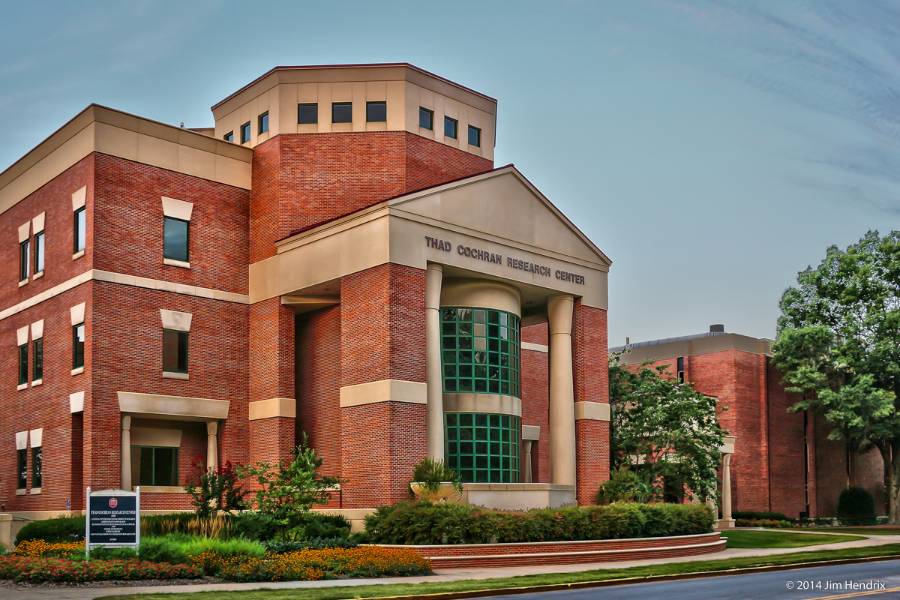
The University of Mississippi School of Pharmacy Research Clinic is looking for students and residents of the Oxford/Lafayette community to participate in a clinical study for the antimalarial drug Primaquine.
Primaquine, a general medication used to treat and prevent malaria, is one of the safest and most essential medications in the world, as listed by the World Health Organization (WHO). This new study comes just in time for WHO’s World Malaria Day on April 25, which highlights the need for continued commitment to malaria control and prevention around the globe. This year’s theme for World Malaria Day is “End Malaria for Good.”

Photo by Alex Williamson/WHO
The UM School of Pharmacy Research Clinic is capitalizing on WHO’s theme and continuing its existing research on Primaquine that has been in the works for the past 25 years. Researchers in the School of Pharmacy are hoping to dramatically improve the Primaquine drug through this new clinical trial and are optimistic about the outcome.
Director Emeritus of the National Center for Natural Products Research, Dr. Larry Walker, believes that preventative research such as this by universities throughout the country is crucial in making further advancements toward a final cure for malaria.
“Primaquine is an old antimalarial drug, very inexpensive and very effective for the liver stages of malaria parasites, yet its use is limited because people with a genetic deficiency in an enzyme have bad reactions to the drug,” Walker said.
This enzyme (glucose-6-phosphate dehydrogenase, G6PD) causes severe damage to red blood cells if affected.
“This deficiency is very common around the world and in the regions where malaria is prevalent, and so many public health programs are reluctant to use primaquine,” Walker said. “If we could find a way to stop that reaction, the drug would be safer and could be used more widely.”

Photo courtesy of World Health Organization
According to the United Nations International Children’s Emergency Fund (UNICEF), anywhere between 300-600 million children and adults are suffering from malaria each year, and over one million people die from this disease in any given year. Children under five years old are most susceptible to dying from malaria, while more than 40 percent of the entire population lives in malaria-risk regions across the world.
Primaquine is chemically created by mixing two forms and is very difficult to separate, but the University of Mississippi School of Pharmacy is confident in its previous studies enough to continue on with this new clinical trial.
“We have studied the primaquine-type drugs for many years. We have developed methods for the separation and preparation of the two forms. We have shown that both forms work in animal studies, but they are metabolized differently, and one has fewer side effects than the other,” Walker said. “Ultimately, we want to determine whether the two forms of the drug are metabolized differently in humans, and whether one of them is safer.”
Research in the University’s new clinical trial will begin by studying the metabolism of the two forms of primaquine in normal human volunteers without the G6PD enzyme deficiency. The drugs are being prepared by local company, ElSohly Laboratories, Inc.
“In the long run, these studies will help us to better understand the safety and metabolism of this class of drugs, and perhaps make it more useful in the fight against malaria,” Walker said. “It may also allow us to apply the findings to newer drugs in this class, which we also are developing.”
According to the UM School of Pharmacy website, the University of Mississippi with be collaborating not only with students, but also with the UM Medical Center in Jackson.
Second-year pharmacy student Alix Cawthon said that the students in her program are very interested to see what new advancements come out of this trial.
“It’s the first human study the school has gotten to do, so everyone is very excited,” Cawthon said.
To participate, you must be a healthy adult between 18-60 years old. The study requires participants to visit the research clinic approximately seven times over a seven-week period. Monetary compensation is also available for those who participate.
Research is partially funded by the Department of Defense Joint Warfighter Medical Research Program, Award number W81XWH-13-2-0026.
Those interested can contact Dr. Larry Walker or Kerri Harrison at 662-915-2103.
By Jordan Dollenger, an intern for HottyToddy.com. She can be reached at jmdollen@go.olemiss.edu.
For questions or comments, email hottytoddynews@gmail.com.

